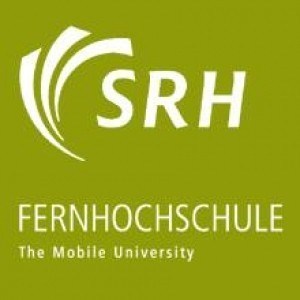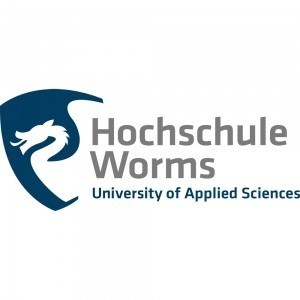Photos of university / #hsb.hochschulebremen
The Bachelor's degree program in Global Management at the University of Applied Sciences Bremen is designed to prepare students for the dynamic and interconnected world of international business. This program offers a comprehensive curriculum that combines foundational management principles with a global perspective, enabling graduates to effectively navigate diverse cultural, economic, and legal environments. Throughout the course, students develop essential skills in strategic management, international marketing, finance, and human resources, complemented by language proficiency and intercultural communication. The program emphasizes practical experience through internships, project work, and collaborations with international companies, ensuring that students gain real-world insights and networking opportunities. Additionally, students benefit from the university's strong connections with industry partners and alumni network, facilitating career development in multinational corporations, consulting firms, and start-ups. The curriculum is designed to be flexible, allowing students to choose elective modules that align with their personal and professional interests, such as digital business, corporate social responsibility, or entrepreneurship. The university's modern facilities and international environment foster an engaging learning experience, encouraging teamwork, innovation, and critical thinking. Upon graduation, students are equipped with the managerial mindset and cultural competence necessary to succeed in global markets and contribute to the growth of international organizations. The program's international orientation, combined with practical training and academic excellence, makes it a competitive choice for aspiring global managers seeking a solid foundation in international business administration.
The International Business Management Bachelor's program at the University of Applied Sciences Bremen is designed to prepare students for the complex and dynamic world of global commerce. This comprehensive program offers an in-depth understanding of core business principles intertwined with global management strategies, cross-cultural communication, and international market analysis. Students will gain practical skills in areas such as marketing, finance, human resources, and strategic management, all within an international context.
The curriculum combines theoretical knowledge with practical application through case studies, projects, internships, and collaboration with international companies. Emphasis is placed on developing intercultural competence, leadership qualities, and problem-solving skills essential for managerial roles in diverse global settings. The program also includes modules on digital transformation, innovation management, and sustainable business practices, reflecting current trends shaping international commerce.
Throughout their studies, students are encouraged to participate in exchanges and internships abroad, enriching their understanding of global markets and intercultural differences. The program aims to foster a multicultural learning environment that prepares graduates for careers in multinational corporations, international organizations, and entrepreneurial ventures. Upon completion, students will be equipped with the analytical skills, strategic mindset, and practical experience necessary to succeed in various international business roles, making them adaptable and competitive in the global job market.
Program requirements for the Bachelor of Science in Global Management at the University of Applied Sciences Bremen typically include the following aspects: applicants must possess a high school diploma or equivalent qualification recognized for university admission in Germany, demonstrating strong academic performance in relevant subjects such as mathematics, economics, and foreign languages. proficiency in English is compulsory, often evidenced by standardized test scores such as TOEFL or IELTS; for example, a TOEFL iBT score of at least 80 or an IELTS overall band score of 6.0 may be required. prior work experience is not mandatory but can be advantageous during the application process. applicants are also expected to submit a motivational letter explaining their interest in global management and their career aspirations, along with a curriculum vitae outlining relevant educational background and extracurricular activities. Additionally, certain programs might require an interview or assessment center to evaluate interpersonal skills and motivation further. applicants should ensure that all documents, including certificates and language proficiency proofs, are submitted in accordance with the university’s application deadlines and format specifications. the program encourages applicants from diverse countries and backgrounds, promoting internationality within its student body. language of instruction for the program is primarily English, and therefore, prospective students must demonstrate sufficient English language skills to participate effectively. financial documentation or proof of funding may be necessary for international applicants to ensure compliance with visa requirements. no specific entrance examinations are mandated by the university for this program. however, applicants must meet the general admission criteria set by the university and provide all necessary documents reflecting their educational and language proficiency status. admission decisions are made based on a holistic review of academic records, motivation, and language skills, aiming to select motivated individuals capable of thriving in a multicultural learning environment focused on global management practices.
The financing of the Global Management program at the University of Applied Sciences Bremen is designed to be accessible and transparent for both domestic and international students. The program’s tuition fees are structured to cover the costs of high-quality education, academic resources, and student services, ensuring that students receive value for their investment. Tuition fees vary depending on the student's nationality and status; typically, EU/EEA students pay reduced or no tuition fees due to government subsidies, while non-EU students are required to pay higher fees, which are clearly outlined on the university’s official website.
Students are encouraged to explore multiple funding options to finance their studies. Scholarships and financial aid opportunities are available through the university, including merit-based scholarships, need-based financial support, and specific programs aimed at international students. The university also collaborates with external organizations and companies to provide scholarships and internship opportunities that can help offset costs.
In addition to scholarships, students can consider government-funded student loans or private financing options, depending on their home country. The university’s student advisory services provide detailed guidance on application procedures and eligibility criteria for various financial assistance programs. For international students, specific visa regulations may include requirements related to financial proof, and the university offers support in preparing the necessary documentation.
Part-time work is another viable option for students to finance their studies; Bremen has a vibrant job market with opportunities for students to work part-time during their studies, subject to visa regulations and work hour restrictions for international students. The university’s career services assist students in finding suitable employment and internships, which can provide both financial support and practical experience.
Overall, the university emphasizes responsible financial planning and advises students to budget carefully and seek early support to ensure that financing does not hinder their academic success. The university’s administration and student support services are committed to providing comprehensive information and assistance throughout the financial planning process, helping students to make well-informed decisions about funding their Global Management studies.
Global Management at the University of Applied Sciences Bremen is designed to prepare students for leadership roles in an increasingly interconnected world. The program emphasizes a comprehensive understanding of international business environments, strategic management, intercultural communication, and sustainable development. Students will gain practical skills through project-based learning, internships, and collaborations with companies from various industries. The curriculum includes modules in international marketing, corporate finance, human resource management, and innovation management, providing a well-rounded business education tailored to global challenges. The program encourages critical thinking, ethical decision-making, and entrepreneurial spirit, equipping graduates to succeed in diverse cultural contexts and complex markets. It also offers opportunities for mobility and exchange programs with partner universities worldwide, enhancing intercultural competence and global perspective. Faculty members bring extensive industry experience and academic expertise, ensuring students receive a high-quality education aligned with current global trends. Graduates of this program are prepared for careers in multinational corporations, consulting firms, international organizations, and entrepreneurial ventures. The program is typically delivered in a bilingual format, often combining English and German instruction, to better prepare students for international business settings. Career support services are available to assist students in internships, job placement, and further professional development. The university’s connections with businesses and industry partners facilitate networking opportunities and real-world applications. The duration of the program is usually three years for a Bachelor's degree, leading to a recognized qualification that opens pathways to postgraduate studies or employment worldwide.






